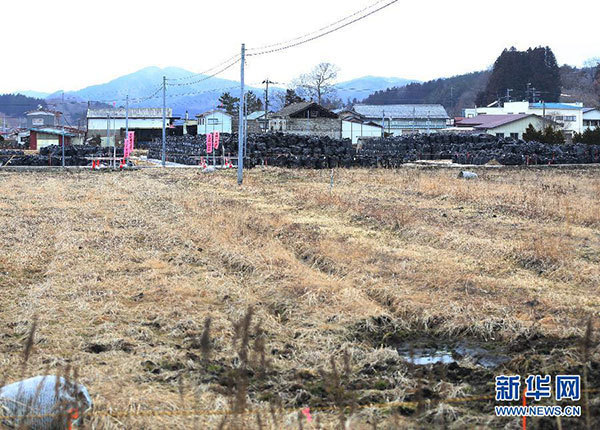Japan to end Fukushima water contamination by 2020
 0 Comment(s)
0 Comment(s) Print
Print E-mail CRI, March 9, 2016
E-mail CRI, March 9, 2016
 |
|
Black bags containing buildup of contaminated wastes are seen in the town of Iitate, Fukushima Prefecture, Japan, March 7, 2015. [Photo/Xinhua] |
Five years after the Fukushima nuclear disaster, Japan has set a 2020 deadline to end water contamination at the site.
More than 700-thousand tons of radioactive water are stored at the site, posing the greatest challenge to decommissioning the plant.
Leader of the water contamination team at the site Yuichi Okamura highlights the urgency of the issue.
"The volume of the water that has mounted over the years was beyond imagination so it was necessary to think about how to handle and dispose of the contaminated water. We have been going through a vicious cycle, and discussions are not proceeding smoothly either. "
Water has been poured into the damaged reactors in a bid to keep their cores from overheating again.
The water is then treated to remove all but one radioactive element, which experts say is inseparable from water.
International and Japanese nuclear agencies have urged the government to carry out a controlled release of the treated water into the ocean, a routine move at other nuclear plants.
Authorities have also been working on controlling underground water infiltration into radioactive areas.
An earthquake and a tsunami swamped the plant in central Japan in March 2011.






Go to Forum >>0 Comment(s)